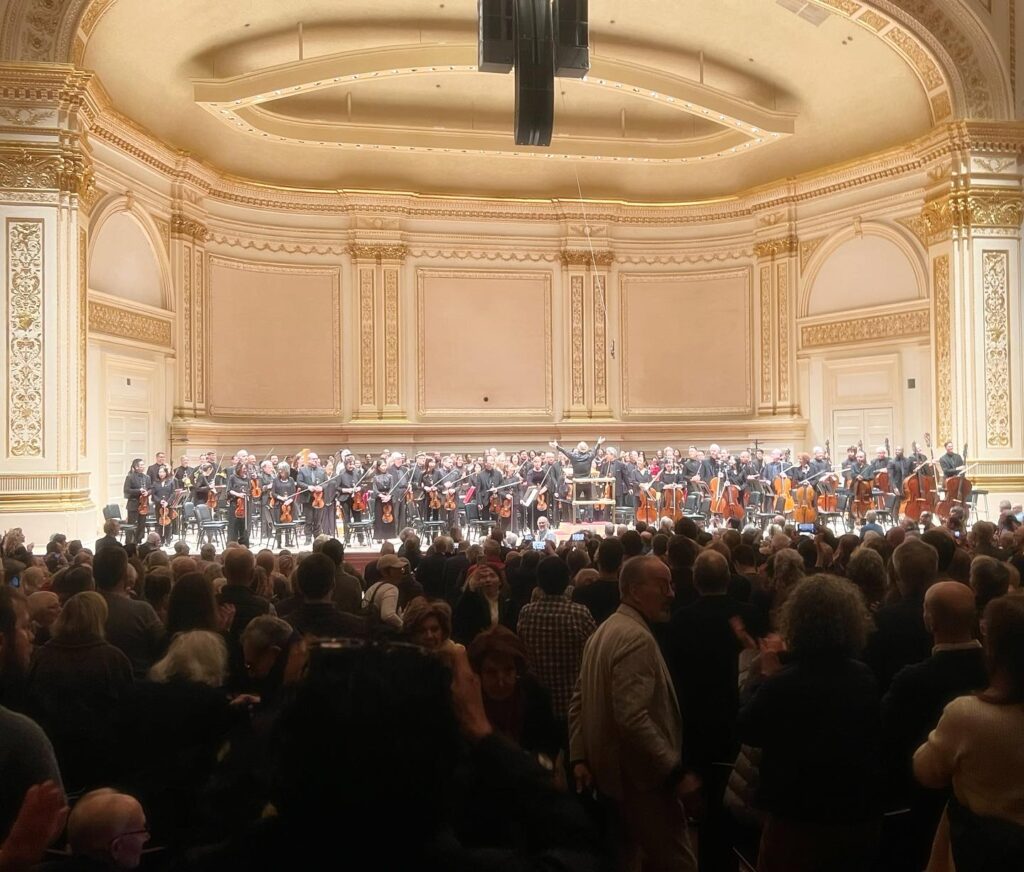THE HANGOVER REPORT – A pulse beats through Nézet-Séguin’s reading of Mahler’s Third via THE PHILADELPHIA ORCHESTRA
- By drediman
- October 16, 2024
- No Comments

Last night at Carnegie Hall, the great Philadelphia Orchestra performed Gustav Mahler’s expansive Third Symphony, one of the undisputed titanic works in the orchestral canon (in fact, the symphony is Mahler’s longest work, which means it’s long). With an ample running time of approximately 100 minutes, the piece essentially charts the creation of the natural world and progresses through epochs of evolution, all the while evoking sounds of nature and humanity in a rich and often unruly cacophony.
Despite the sprawling (and arguably unfocused) nature of the piece, Music Director Yannick Nézet-Séguin’s managed to find its beating heart, which pulsed clearly throughout the performance. That he was able to reign in the massive first movement — which depicts, no less, the creation of the world — is an accomplishment unto itself, with its piercing, unsettled horns and primordial murmur eventually giving rise to life itself. Thankfully, all this haphazard, clashing activity was handled by the maestro and the capable Philadelphia forces with firm forward movement yet admirable attention to color and detail. In contrast, the second and third movements (the minuet and scherzo, respectively) were rendered with a larger sense of purpose and, once again, forward momentum without losing their sunniness.
As such, they segued ideally into the heftier, more philosophical final three movements, which were played as a single swath of music. In the burnished music that followed, the fabulous and beloved opera star Joyce DiDonato compassionately and serenely brought her gleaming mezzo soprano to the universal fold, as did an astute choir, a wonderful pairing of the Sopranos and Altos of the Philadelphia Symphonic Choir and the Philadelphia Boys Choir. The work’s famous adagio was luxuriously soaked in autumnal glow by the ensemble’s famed string section, which eventually emerged in sumptuously expressive tones for the all-enrapturing final movement. Suffice to say, it was an emphatic yet clear-eyed conclusion to Mahler’s monumental symphony.
HIGHLY RECOMMENDED
THE PHILADELPHIA ORCHESTRA
Classical Music
Carnegie Hall
1 hour, 40 minutes (without an intermission)
One-night-only

 Copyright © 2025
Copyright © 2025
Leave a Reply